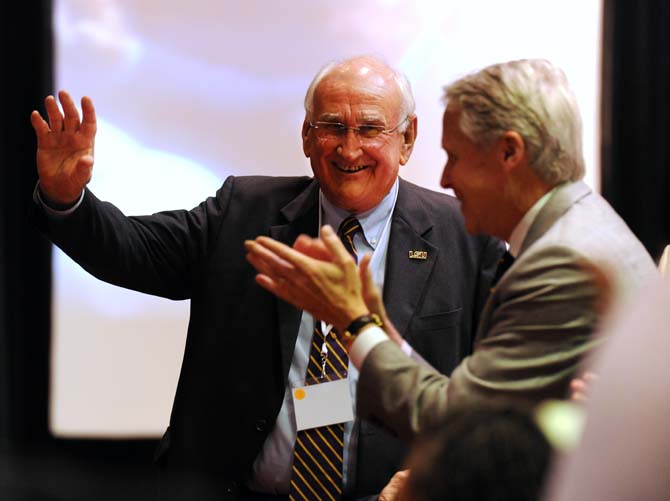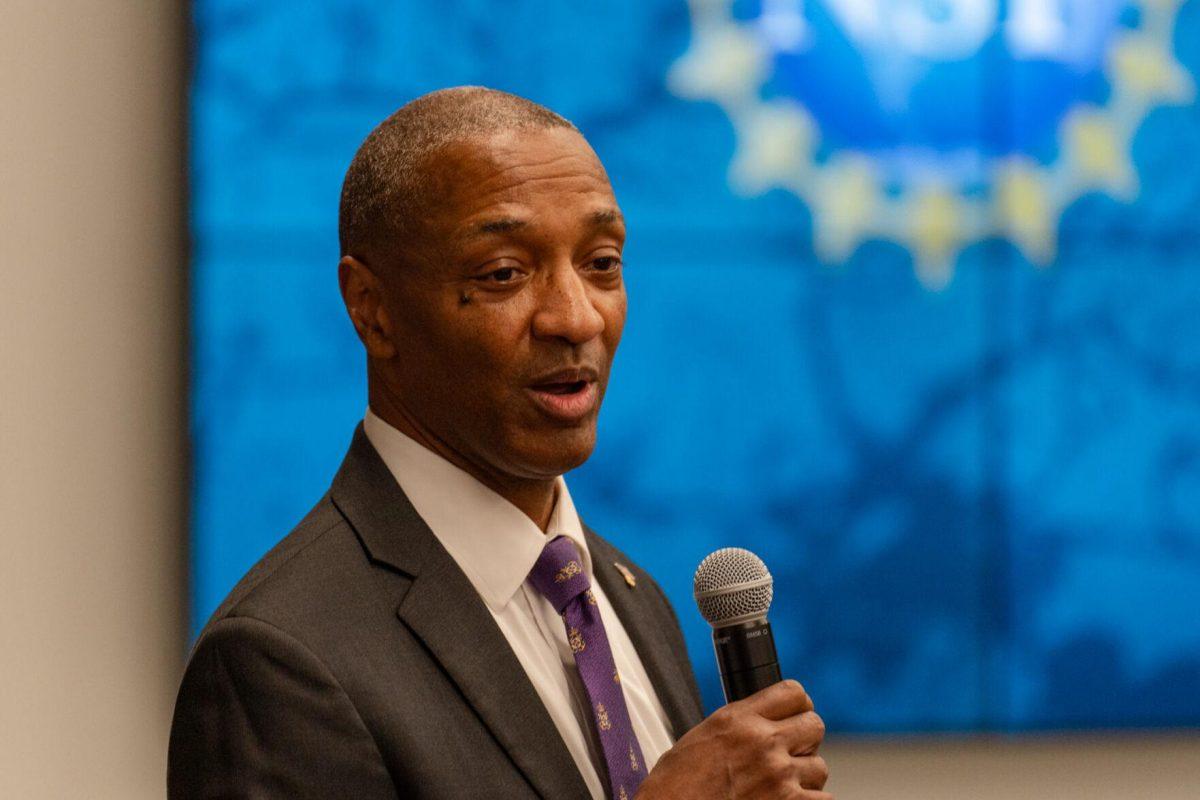As he reflected Wednesday on his time as interim system president and chancellor, William “Bill” Jenkins said contrary to popular belief, he won’t spend his retirement playing golf five days a week.
After immigrating to the United States from South Africa in 1978 with his wife and children, Jenkins found a position at the University as the dean of the School of Veterinary Medicine and began climbing the ranks.
Now in his second term in the office of system president, Jenkins will step down soon to make way for newly elected System President F. King Alexander.
Jenkins said he is ready for retirement and wants it to be spent with his family — his wife, Peggy, four children and nine grandchildren — in Dallas, teaching seminars and writing.
While he never wants to return to administration, Jenkins said he will “never turn [his] back on LSU. If they need me for any purpose, I’ll do it.”
After more than 35 years working in higher education, Jenkins said his career has had many highs and lows that emphasize his desire to bring beneficial and sustainable change to the University.
“There’s very little in my career I haven’t experienced, from the heights of joy to the depths of gloom,” Jenkins said.
His favorite moments at the University were the days he set goals to push the University toward being a tier-one institution. Aspiring to and achieving that goal were some of his best experiences, Jenkins said.
“I began seeing the progress, the research and enrollment begin to increase. Then admissions standards and graduation rates began to climb,” Jenkins said. “We bathed in the success, and my focus was on that.”
Jenkins said other moments of pride at the University include winning the BCS National Championship games.
When all areas of the University experienced such prosperity, “everything began to pulse and beat with a rhythm that was very inspirational to me,” Jenkins said.
But there were difficult times, too, he said.
Jenkins said his toughest times as an administrator were watching the University’s progress and success be slowly undermined by relentless budget cuts.
“The gradual decline started, and it was hard because I could see how far we had come and the quality of our faculty and students,” Jenkins said. “It’s hard when you had such momentum and such great expectation.”
Despite budgetary and administrative challenges, as well as tragic student deaths that devastated Jenkins personally, the University persevered, he said.
Jenkins said the University’s triumph, despite so many obstacles, is due to the incredible people that he has worked with during his time as an administrator.
“I’ve found them involved, caring, bright. It’s tremendous,” Jenkins said. “And the students, there’s something different about this generation. They have a sense of involvement and a sense of community that I’ve been truly impressed by.”
Looking back on his years at the University, Jenkins has found enough inspiration to necessitate two manuscripts, which he said he has already started writing.
Jenkins said the first story will be biographical, written for his children and grandchildren. It will focus on his academic career and some of the more interesting aspects of his life.
“I’ve done and seen things in my life that would shock you. Especially in South Africa,” Jenkins said.
The second manuscript will focus more exclusively on Jenkins’ experiences at the University, especially leadership scenarios that succeeded and failed and “the dynamic of that,” Jenkins said.






